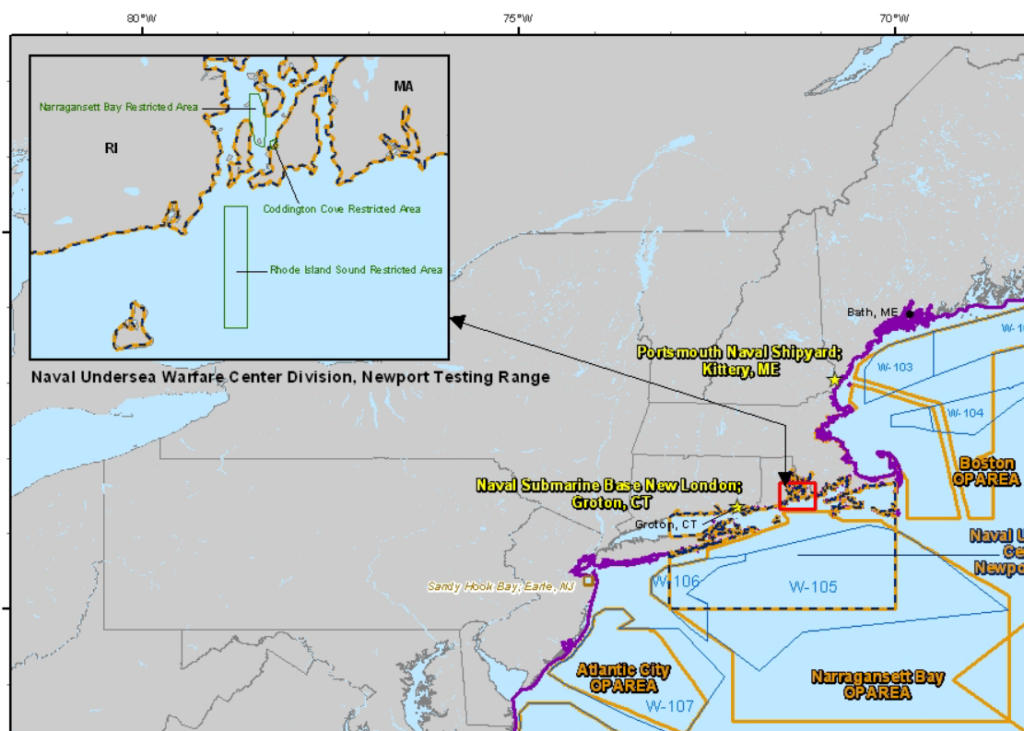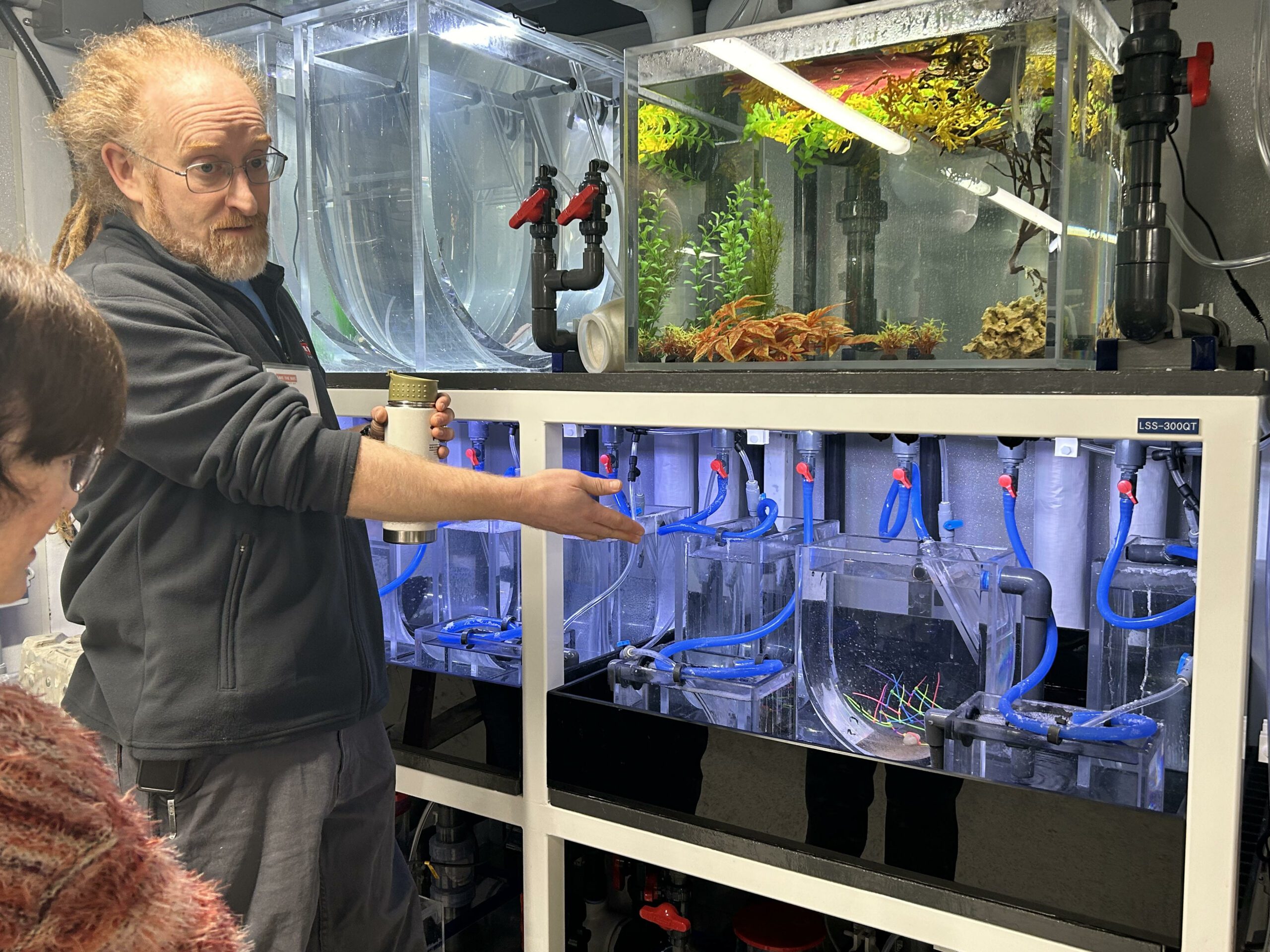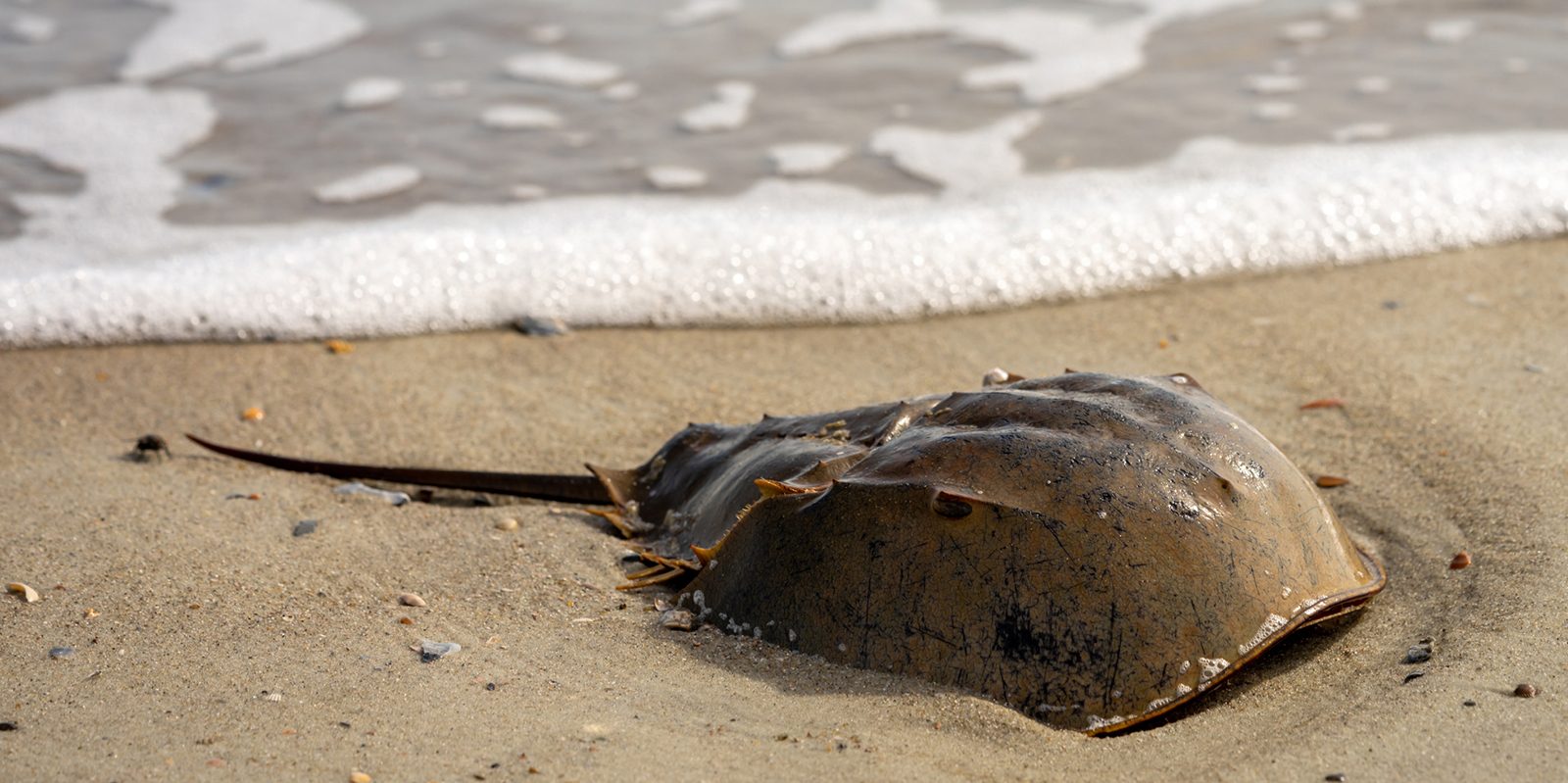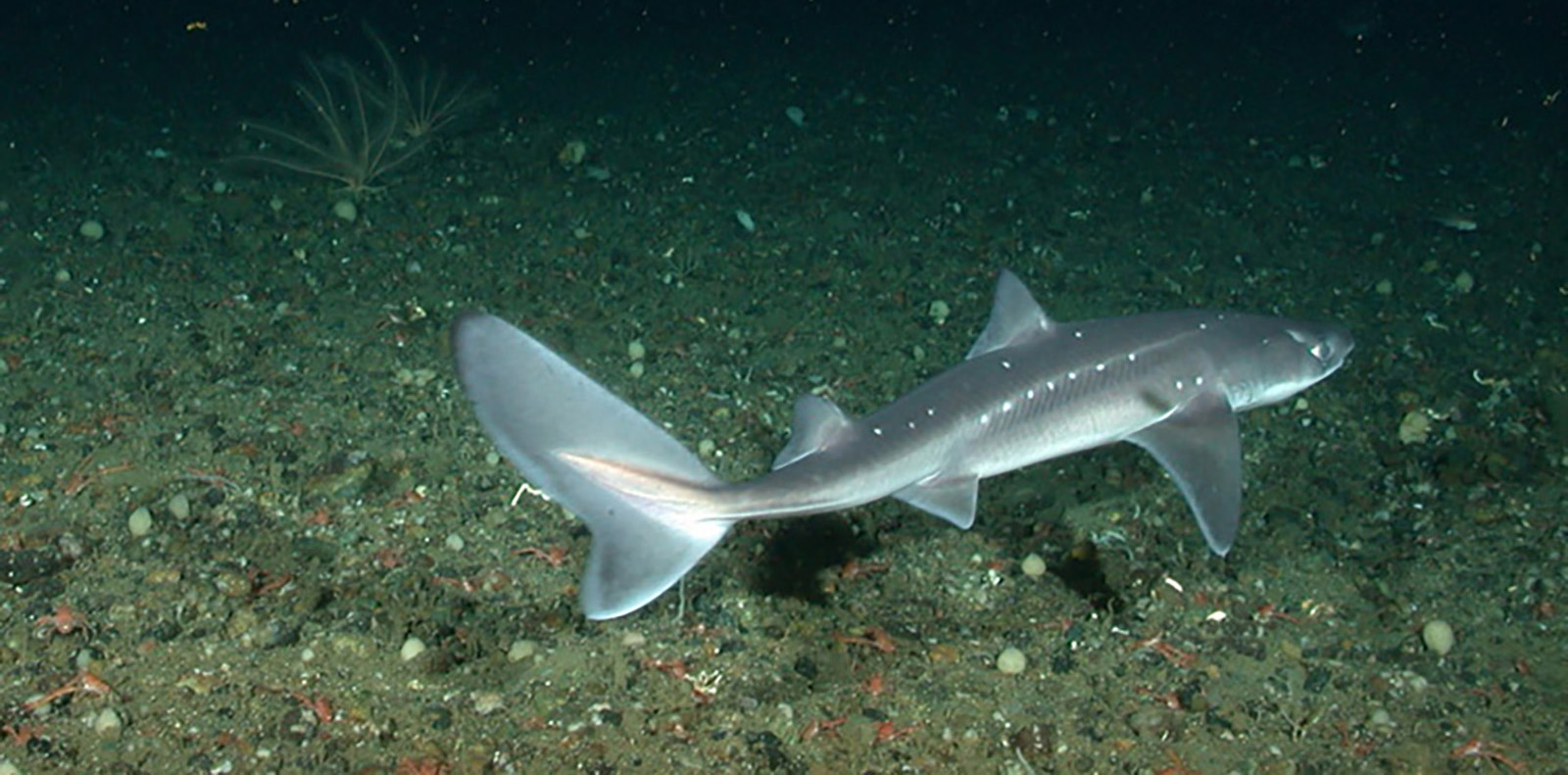Military Exercises Raise Local Environmental Concerns
July 24, 2017
PROVIDENCE — The recent public meeting showcasing Navy training, testing and military exercises planned for the East Cost, including Narragansett Bay, offered access to Navy scientists and mountains of data, but attendees were frustrated by the format of the gathering and by the ethical and environmental issues raised by next year’s war games.
Many visitors anticipated an open forum, where audience members ask questions and voice opinions on the planned military drills. Instead of a town hall-like gathering, the meeting was akin to an art exhibit or open house, where visitors had one-on-one conversations with experts in sonar, undersea warfare and explosives. The science-fair setting is common for controversial projects and was used recently for the proposed LNG facility expansion on Allens Avenue and other natural-gas pipeline projects.
“I feel they spend a lot of time controlling the crowd,” said Rachael L. McIntosh, an East Greenwich author and radio host who is a critic of the defense industry and contractors.
McIntosh was one of several skeptics of the military exercises known as the Atlantic Fleet Training and Testing. She is concerned about air and water pollution, in particular a process of intentional modification of the weather known as geoengineering.
Jolie Diane drove from New Jersey with two friends to speak out against what she considers an extension of the 1992 United Nations Agenda 21 sustainable planning resolution. Like McIntoch, she praised Rhode Island for introducing a bill that would regulate geoengineering.
“Whose going to be responsible for the damage?” Diane asked.
Despite unanswered questions, the July 19 open house clarified the size and scope of the planned military activities. First, there won’t be a large-scale coordinated mock battle happening all at once up and down the East Coast. Rather, the activities will be a continuation of training and testing exercises that are already taking place. The Navy, however, must renew its environmental permit every five years in order to continue coastal military activities. Information sessions are held to take comment on the environmental impact statement. Comments can be submitted online through Aug. 29. If approved, the new five-year permit allows training activities to begin in late 2018.
Most of the training and testing are modest-size drills that take place far from public view, according to the Navy. Cities with substantial Navy bases, such as Norfolk, Va., and Jacksonville, Fla., will likely host large air and sea demonstrations lead by an aircraft carrier and three smaller ships. Southern New England will host significantly smaller activities, most of which are already happening throughout the year.

Rhode Island will have testing and training in two locations in Narragansett Bay and a third between Block Island and the mainland. The smallest of the three sites is directly in front of the Naval War College in Newport, a site of regular military training and testing because it hosts the Naval Undersea Warfare Center, a facility that designs and tests equipment and weapons to combat underwater threats.
There will be no live ammunition used in Rhode Island. However, undersea sonar testing is the primary activity at these sites. Much of the center’s activity involves undersea drones that use sonar to map the seafloor and search for enemy vessels. Both low-frequency and high-frequency sonar will be used. The simulated combat activities also include the use of low-level seismic air guns. Navy experts at the recent open house didn’t know the scope of the air-gun activity.
The Navy is limiting sonar use in Rhode Island to no more than 200 hours over eight days per year. There will also be up to 15 days of aerial drone use, 132 days of unmanned surface vehicle testing, and 309 days of unmanned underwater vehicle testing.
The Navy insists that it is using the latest research from universities and the National Marine Fisheries Services to limit and monitor the impact on sea life. Data on the seasonal presence and migration of the endangered North Atlantic right whales, dolphins and seals will also limit the use of undersea testing, according to the Navy. Spotters will monitor the site for the presence of marine mammals and suspend operations if they are found.
Christie Rayner of Climate Action RI worried that spotters are inaccurate and that whales often appear unexpectedly.
“I doubted the accuracy of primarily relying on this strategy, and they didn’t really have an answer,” Rayner said.
The National Resources Defense Council (NRDC) has been a frequent critic of the Navy’s use of sonar, because of the damage it can inflict on sea life. The NRDC has also accused the Marine Fisheries Service for its permissive attitude toward sonar use.
Pat Fontes of the Rhode Island Anti-War Committee said the sheer size and scope of the training and the military complex in general defies logic.
“It’s ridiculous. Who’s going to declare war on the United States that requires this kind of action?” Fontes asked.
The Navy insists that the training and testing is necessary to keep up with growing military might and technological advances from counties such as Russia, Iran, North Korea and China.




The autonomous underwater vehicle which the Chinese deliberated kidnapped from the South China Sea and returned intact was about six-foot long and floated harmlessly in the water at varying depths. It was no threat to the Chinese or to whales or to Chinese whales.
More balanced article that the initial, alarmist hyperventilation. Amazing what happens when you obtain FACTS before throwing grenades. Although calling it a "science fair" is an unnecessary barb. Open mike hearings tend to devolve into people who want to hear themselves talk, but the average person never gets their questions answered. These type of formats, where there are a dozen experts, is far more conducive to actual information exchange vice grandstanding. Those opposed to this type of routine training, that has been ongoing for decades with no appreciable impact to the environment, are simply anti-military. That’s fine, that’s their opinion and they are entitled to it. But don’t hide behind a veneer of claims of significant environmental harm when there are none. At least Ms. Fontes, who clearly has forgotten the lessons of history, is honest about what her beliefs are.
I went to the dog and pony show. And asked lots of questions that were not answered. Here are some of them:
The US military has lost every war it has fought except the invasion of TINY island nations in the last 60 years, and the act of fighting these wars has lead to the world situation deteriorating and Americans feeling less safe. You want our support so you can kill whales while practicing to lose wars and make Americans less safe? Why?
The answer was that this was above their paygrade.
I asked about whether it was worth it to kill whales while bankrupting our country, as nearly all of the deficits of the last 60 years have been due to excessive spending on the war machine?
Again no real answers.
My conclusion after stopping at each station around the room was that it was totally a scam by the Navy and our government. They are trying to manufacture consent while engaging in the destruction of democracy and that this practicing for war is likely to get a lot of people killed, not during the exercises, but as a result of the mentality of using the military to solve problems when actually talking to people and taking steps to reduce militarism would work better.
War is the most destructive environmental action that people take. The Pentagon burns more fossil fuels than any other institution or business on the planet. Any reader who cares about the environment ultimately must come to the conclusion that reducing military spending by 80 to 90% would be the best thing the American government could do if it wants world peace and to stop climate change. That our Navy conducts its public information sessions to avoid hearing that is a travesty.
So you expected a collection of marine biologists to answer questions regarding the U.S. national security strategy? I think you went to the wrong meeting.
War is in fact NOT the most destructive act humans take. Your statement is simply factually incorrect. Human development generally has done more to change and impact the environment than the occasional war.
Simply because you disagree with the purpose of the Navy does not make it a "scam." It sounds like you are the one seeking consensus, the Navy was simply presenting information.
The recent "public meeting" in Providence regarding next year’s Naval military exercises on the East Coast, introduced the Navy’s new strategy for dealing with the public. They have removed the voice of the people from any discussion about the "war games".
They have silenced any opposition by having no platform for discussion.
Thanks to photographer Tim Faulkner and demonstrator Pat Fontes for speaking out effectively against the Naval strategy.
Maggie B.
They’ve "silenced" the public, really? You seem to be speaking right now. You are free to speak your mind, submit your comments, etc.
The point was to share information, not give you a podium.